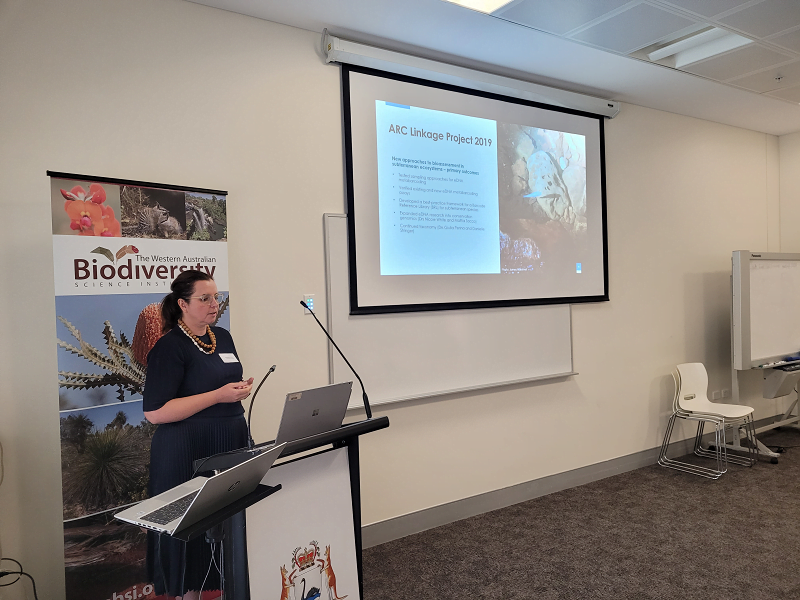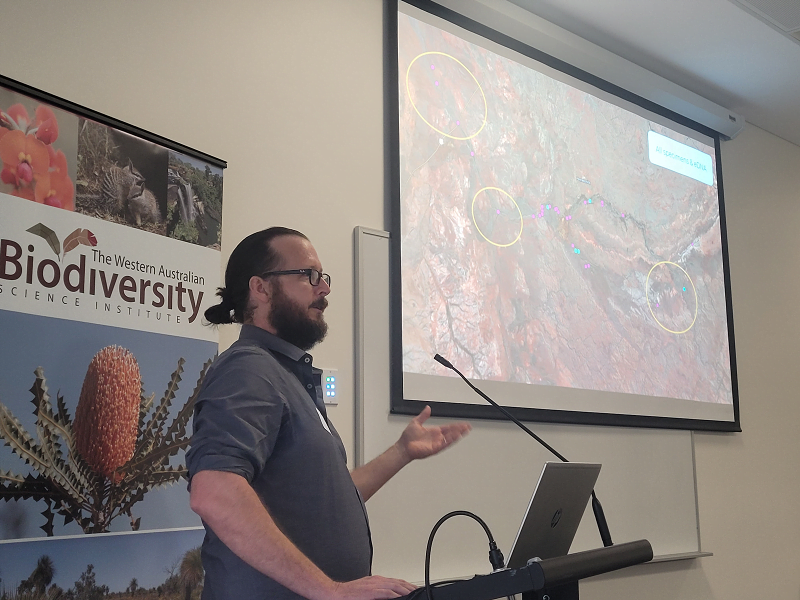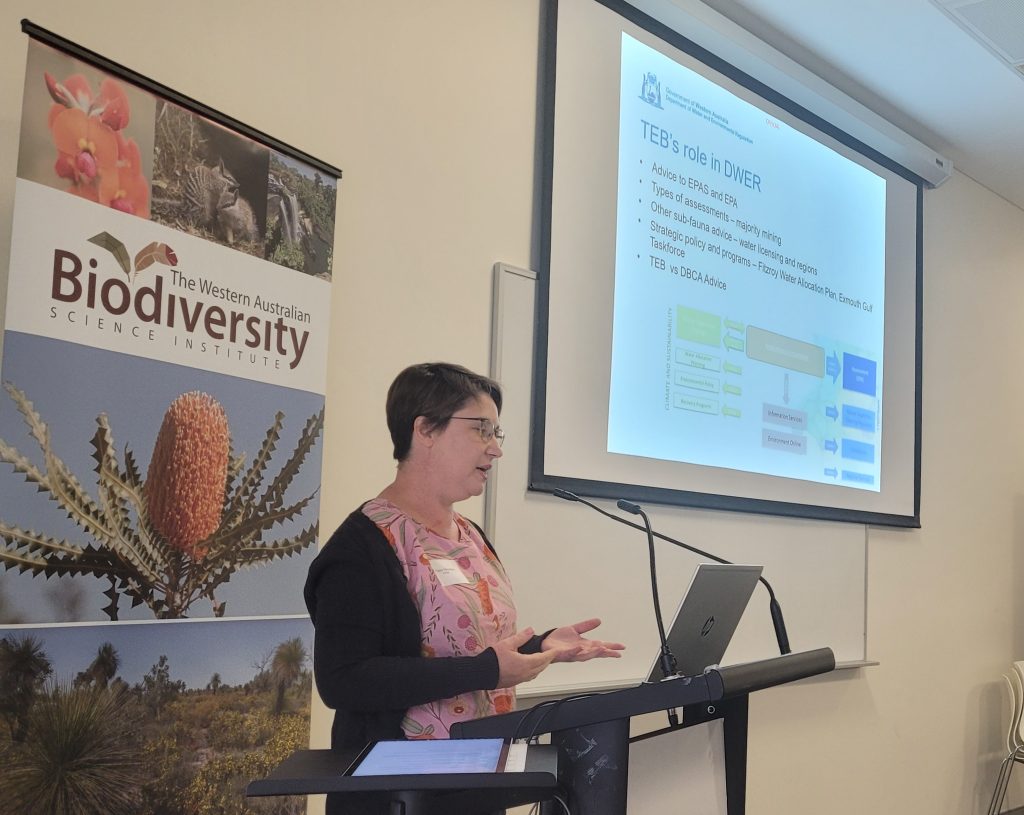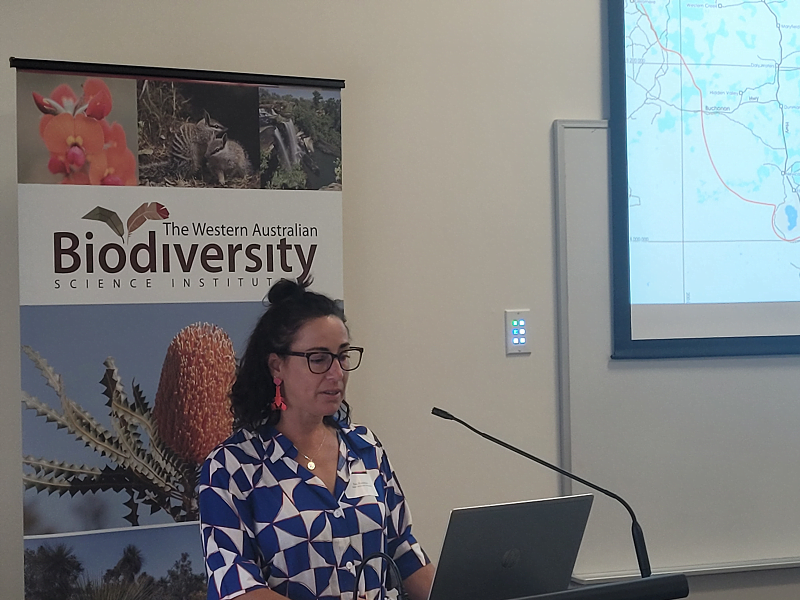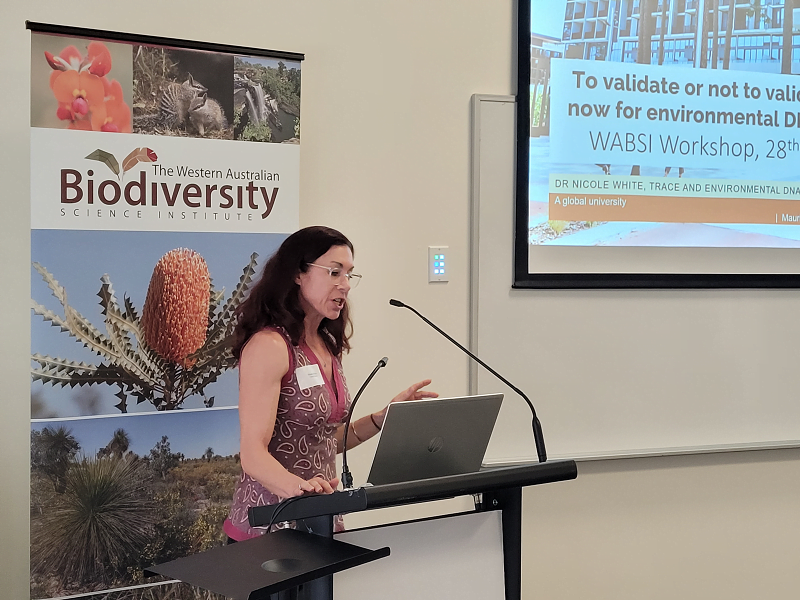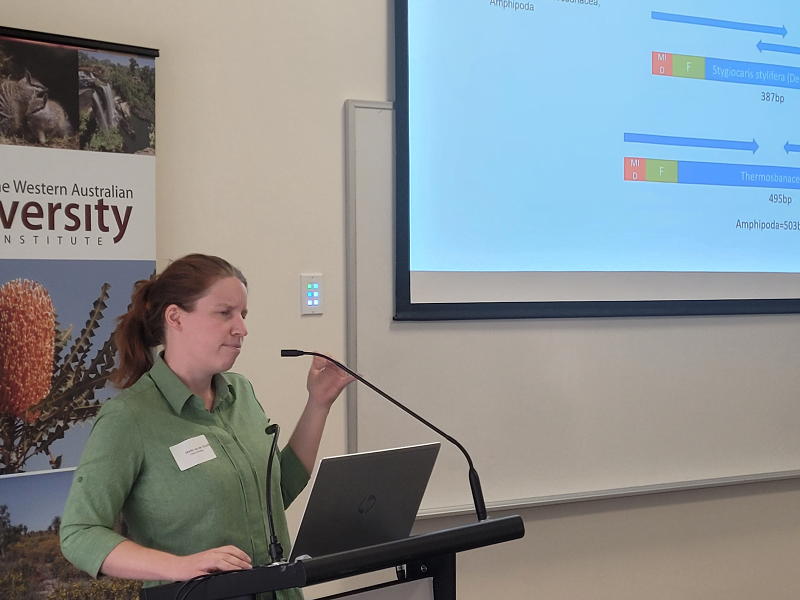Taking eDNA underground: Transforming assessment of subterranean ecosystems
Resource companies in Western Australia are mandated to assess and monitor groundwater biodiversity as part of the State’s Environmental Protection Agency legislative requirements. However, current groundwater survey techniques rely on traditional taxonomy and DNA sequencing of individual specimens, which are time-consuming, expensive and biased towards common taxa.
The ARC Linkage project: Taking eDNA underground: transforming assessment of subterranean ecosystems is complete. The aim of the project was to develop a novel environmental DNA (eDNA) approach using new assays and a DNA barcode reference library for comprehensive, accurate, cost effective and reproducible monitoring of the Pilbara’s unique groundwater communities. These eDNA approaches will also be applicable to groundwater monitoring across Australia and elsewhere.
WABSI hosted a workshop on 28th February 2024 where researchers presented the project’s research outcomes and provided an opportunity for an extended discussion on integrating these outcomes into bioassessment and monitoring of subterranean fauna in Western Australia.
Click here to view workshop summary
Workshop participants and other stakeholders were invited to participate in a survey to review the current use of eDNA, and how they would like to use it in the future. Outcomes of the survey are described in a summary report.
View survey summary report below:
Download workshop presentations:
Dr Michelle Guzik presentation
Dr Nicole White presentation
Dr Mieke van der Heyde presentation
Photos: (L to R clockwise) Dr Michelle Guzik (University of Adelaide), Dr Joel Huey (Biologic), Claire Stevenson (DWER), Dr Mieke van der Heyde (Curtin University, Subterranean Research and Groundwater Ecology Group), Dr Nicole White Curtin University, Trace and Environmental DNA lab), Dr Zoe Hamilton (Helix Molecular Solutions)
Photo credit: Sonja Mennen
